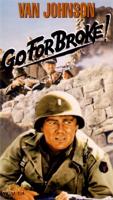
Paperback - 204 pages 2nd Rev edition (April 30, 1999)
In The Nisei Solder: Historical Essays On World War II And The Korean War, Edwin Nakasone draws upon his expertise having taught Asian-American and World War II history from more than 25 years to write a highly informative account of Japanese-American soldiers called "Nisei", who fought to defend American interests, despite discrimination accorded them and their families by the people and government of the United States. The narrative text is rich in descriptive detail, based on Nakasone's own experiences (he served as a Nisei in the U.S. Army's occupation forces in Japan at the end of the war), supplemented with extensive interviews with Nisei soldiers. In addition to offering the reader an informative Japanese-American perspective, Nakasone's essays also explore the Japanese perspectives on World War II not often available to an American reader. The Nisei Solder is a very highly recommended addition to any personal, professional, academic, or community library World War II collection" Midwest Book Review, January 16, 2001
by Masayo Duus, Peter Duus
by Dorothy Matsuo
Director/Camera/Editor: Steve Rosen
Producers: Yuko Sumida, Sherry Lapham Thomas, Charles Richard Woodson
- **** (four stars) "Riveting
. . . a stirring story of the human spirit." --Joe Baltake,
Sacramento Bee
- ". . . a moving look at a neglected chapter in US history." --Kathleen Craughwell, Los Angeles Times
 Go
for Broke!
Go
for Broke!